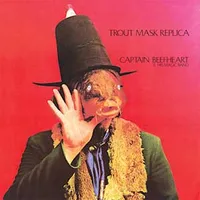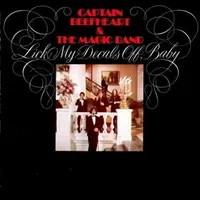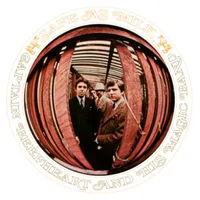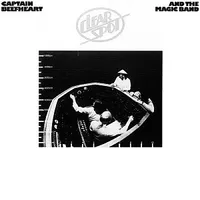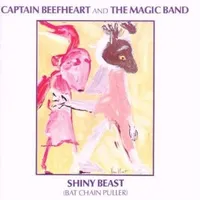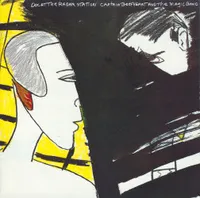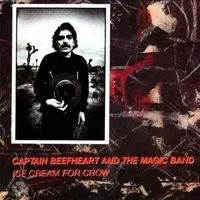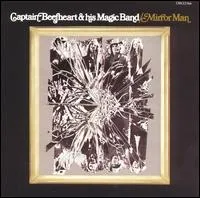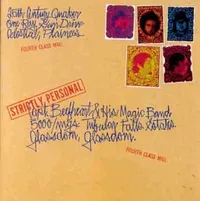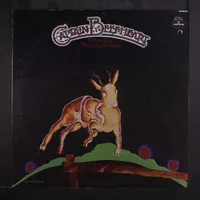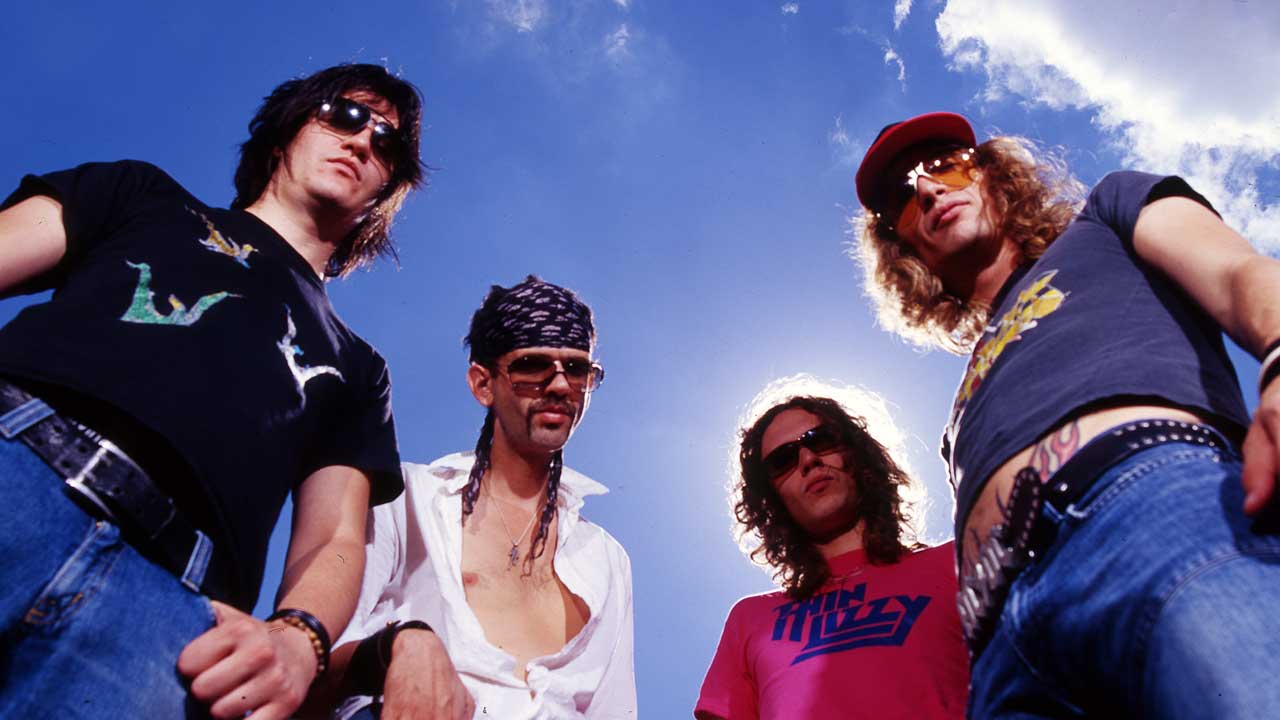"Once you've heard Beefheart, it's hard to wash him out": The Captain Beefheart albums you should definitely listen to
Captain Beefheart was an eccentric but hugely influential artist tortured by his failure to break into the mainstream. These are his best albums
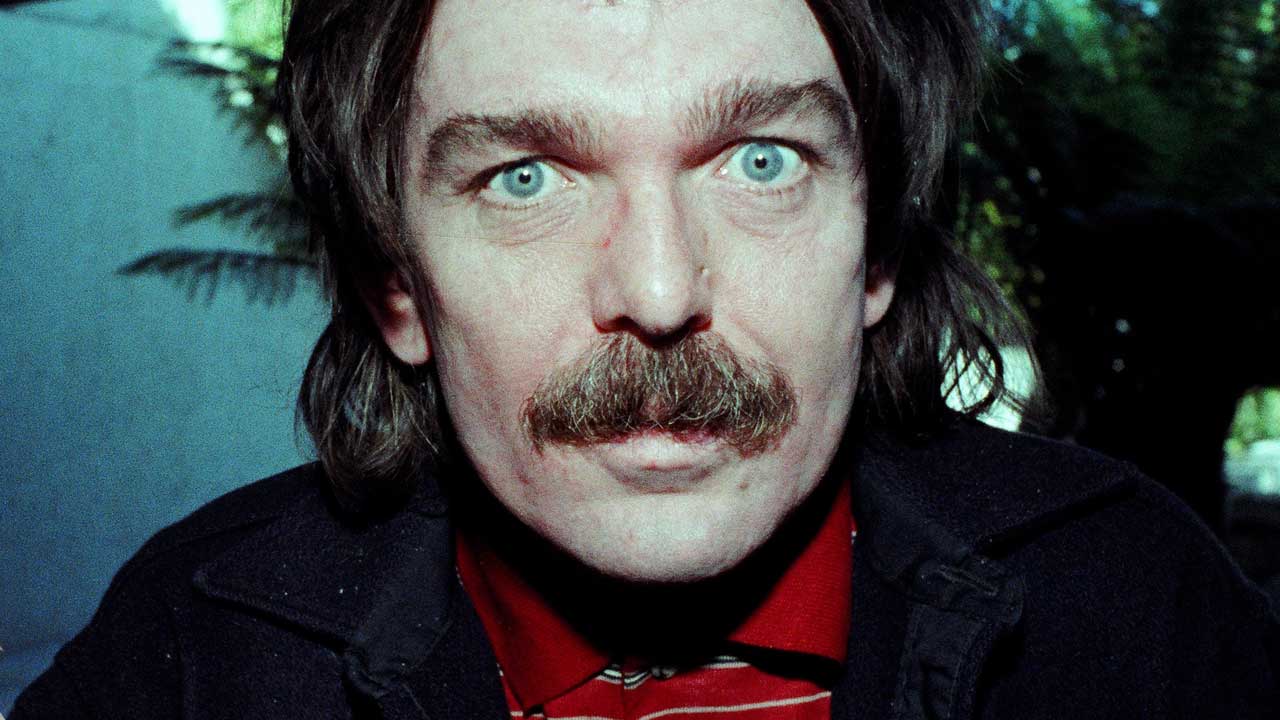
“I’d always thought music was too formal,” Don Van Vliet told one US critic in 1973. “So I thought, ‘I’ll get into this and fix it.’”
The fix, by then, was well and truly on. Four years earlier, Van Vliet, aka Captain Beefheart, had released his masterpiece, the avant-rock behemoth that was Trout Mask Replica. Recorded with his Magic Band, it distorted Delta blues, Beat poetry and free jazz through the prism of his own absurdist imagination, creating a whole new musical dialogue. It was frenzied and disciplined, visionary yet tradition-bound.
The same contradictions came to define Beefheart’s entire career, in which an astonishing body of work was offset by an eccentric personality and tales of almost tyrannical leadership.
Born and raised in Southern California, Van Vliet’s first love was art – painting and sculpting from an early age. Jazz, blues and R&B provided the soundtrack to his teenage years, during which he bonded with fellow Antelope Valley High School pupil Frank Zappa. The pair began writing song parodies and B-movie scripts, one of these – Captain Beefheart vs The Grunt People – giving rise to a new alter ego.
In 1964, Van Vliet headed for LA with what became the first incarnation of his Magic Band. Debut album Safe As Milk landed three years later, foisting Beefheart’s octave-hopping voice and shamanic blues onto a largely unmoved public.
It was the beginning of a pattern that would frustrate and confound him throughout most of his musical life: adored by critics and fans, but shunned by the wider world. Conscious attempts to breach the mainstream – 1974’s Unconditionally Guaranteed and Bluejeans & Moonbeams – were ill-advised.
In 1982 he retired from the business. In the years that followed, amid rumours of ailing health from his secluded enclave somewhere in the Mojave Desert, he devoted his time to painting.
“The way I keep in touch with the world is very gingerly, because the world touches too hard,” he declared in 1994. He died in 2010, but remains a toweringly influential figure. Among those who’ve acknowledged a debt are PiL, The Fall, Pere Ubu, Talking Heads, The Clash, Nirvana, Sonic Youth, and The Black Keys.
As Tom Waits said: "Once you’ve heard Beefheart, it’s hard to wash him out. It stains, like coffee or blood."

Trout Mask Replica (Straight, 1969)
To some an impenetrable mess of discordant dreck; to others the pinnacle of late-60s art-rock and beyond. Furious blues cutups abound, knocked into zero gravity by squealing sax and guttural vocalese, all with little or no regard for either conventional rhythms or time signatures.
Beefheart’s prankish lyrics were just as non-linear, the whole thing a feat of detailed precision posing as pure anarchy. Van Vliet was a rigid taskmaster, holing up the Magic Band in a house in the LA suburbs with a modicum of food and making them practice his songs – written in eight-and-a-half hours – for a full eight months.
Lick My Decals Off, Baby (Straight, 1970)
How to follow Trout Mask Replica? Not a problem for Beefheart and his troops, who served up more unfettered oddness on a set that meshed the free jazz of Ornette Coleman with the Delta moan of Howlin’ Wolf and Blind Willie Johnson.
Despite the convulsive rhythms, it’s a slightly easier listen than its predecessor, with added texture courtesy of Art Tripp’s marimba playing. You can certainly shake an appendage to I Love You, You Big Dummy or bask in the sublime Peon. The release was heralded by a promo video that included an egg whisk, a man in a hangman’s hood and Beefheart upending a tub of porridge.
A&M’s lack of love for Van Vliet’s original demos led to a deal with the Buddah label, whose owner Bob Krasnow produced this Magic Band debut. Arranger/guitarist Ry Cooder, fresh from playing with Taj Mahal in The Rising Sons, helped create a dazzling mix of skronkoid R&B, acid-soul and late-60s psychedelia.
Sure ‘Nuff ‘N Yes I Do borrowed liberally from Muddy Waters’ Rollin’ And Tumblin’, while Autumn Child and Abba Zaba gave warning of the Don’s singular talent. Pick of the bunch was the scarifying Electricity, on which Beefheart’s throaty wail was so loud he blew the studio mic.
Some CD reissues package Clear Spot with The Spotlight Kid as a handy twofer, but the former is the keeper here. Much more accessible than Beefheart’s turn-of-the-70s albums, it’s a feast of mutated boogaloo blues.
Future Van Halen producer Ted Templeman smooths out the creases without losing the myriad folds of Van Vliet’s compositions, with guitarist Bill Harkleroad – aka Zoot Horn Rollo – in inspired form on Big Eyed Beans From Venus. Beefheart’s voice and harp blow freely throughout beauties like Long Neck Blues and the brilliantly-titled Nowadays A Woman’s Gotta Hit A Man.
Shiny Beast (Bat Chain Puller) (Virgin, 1978)
Beefheart recorded an album for Frank Zappa’s DiscReet label in 1976 – under the title Bat Chain Puller – but a legal wrangle put paid to a release. Two years later, Van Vliet and his new band re-recorded a bunch of those songs for what amounted to a sizzling comeback LP.
Guitarists Jeff Moris Tepper and Richard Redus invest the likes of Tropical Hot Dog Night with enough itchy rhythm to conjure what amounted to superior Beefheart disco, while the revived Ice Rose (actually written 11 years earlier) and the skewed Owed T’Alex were riveting examples of freakoid rock.
Doc At The Radar Station (Virgin, 1980)
Beefheart’s most corrosive album for 10 years was partly assembled from fragments of old sessions. Brickbats was indicative of the band’s poisonous new sound, flipping the bird at Van Vliet’s post-punk pretenders, while harking back to his earlier work.
The terrific Sheriff Of Hong Kong and Making Love To A Vampire With A Monkey On My Knee owe much to the interplay between new members Eric Drew Feldman and guitarist Gary Lucas, and returning veteran John French. Beefheart sounds reborn too, delivering one of his finest sort-of-love songs on Dirty Blue Gene.
Ice Cream For Crow (Virgin, 1982)
Don’s swansong, after which he retired to the desert for the duration. A bleak affair it is too, made all the more compelling by ’81’ Poop Hatch and The Thousandth And Tenth Day Of The Human Totem Pole, a pair of spoken-word poems that feel like a final act of wilful contrariness. As does the unequivocal The Host The Ghost The Most Holy-O, which bids a weary adieu to “this branded bum steer world”.
Beefheart’s video for the title track was rejected by MTV for being “too weird”, though, as if to validate his current calling as a painter, it was later accepted into New York’s Museum of Modern Art.
Recorded in the wake of 1967’s Safe As Milk but shelved for four years, Mirror Man hints at the distended avant-garde of Trout Mask Replica, albeit in a much bluesier vein.
The album consists of four rambling songs that stretch out into experimental jams. Tarotplane, which clocks in at nearly 20 minutes, finds Van Vliet invoking the Delta spirits of Blind Willie Johnson, Son House and Willie Dixon, before digging out an Indian reed supposedly gifted him by Ornette Coleman. 25th Century Quaker is a surrealist slice of psych-blues with absurdist lyrics, while the 15-minute title track proved that Beefheart could bring the funk when the fancy struck.
Strictly Personal (Liberty, 1968)
Beefheart’s second LP didn’t so much build on Safe As Milk as strip it apart and rearrange the pieces. Here he establishes the twin slide-guitar format and lyrical impressionism that characterised everything that came after.
There are raga-like stirrings in the elliptical Trust Us, while the bellowing Safe As Milk and Gimme Dat Harp Boy sound like ancient blues in search of new skin. As does Son Of Mirror Man – Mere Man, with its rhythmic jumps, free-range riffs and Van Vliet scatting for all he’s worth. Beefheart whined about producer Bob Krasnow’s phasing effects (apparently applied while the band were on tour), but it’s still a mighty effort.
...and one to avoid
You can trust Louder
Bluejeans & Moonbeams (Virgin, 1974)
No matter that the White Stripes covered the title track, Bluejeans & Moonbeams marks the nadir of Beefheart’s studio output. The regular Magic Band had upped and left after the same year’s Unconditionally Guaranteed, tired of both lack of success and, in guitarist Bill Harkleroad’s words, of Van Vliet “treating us like punching bags”.
The Captain had to suffice with an inferior line-up cobbled from session players (since dubbed the Tragic Band) for a lacklustre set that had none of the zeal of Trout Mask Replica or the bastardised blues of Clear Spot. Beefheart himself dismissed it as “horrible and vulgar”.
Sign up below to get the latest from Classic Rock, plus exclusive special offers, direct to your inbox!
Freelance writer for Classic Rock since 2008, and sister title Prog since its inception in 2009. Regular contributor to Uncut magazine for over 20 years. Other clients include Word magazine, Record Collector, The Guardian, Sunday Times, The Telegraph and When Saturday Comes. Alongside Marc Riley, co-presenter of long-running A-Z Of David Bowie podcast. Also appears twice a week on Riley’s BBC6 radio show, rifling through old copies of the NME and Melody Maker in the Parallel Universe slot. Designed Aston Villa’s kit during a previous life as a sportswear designer. Geezer Butler told him he loved the all-black away strip.
